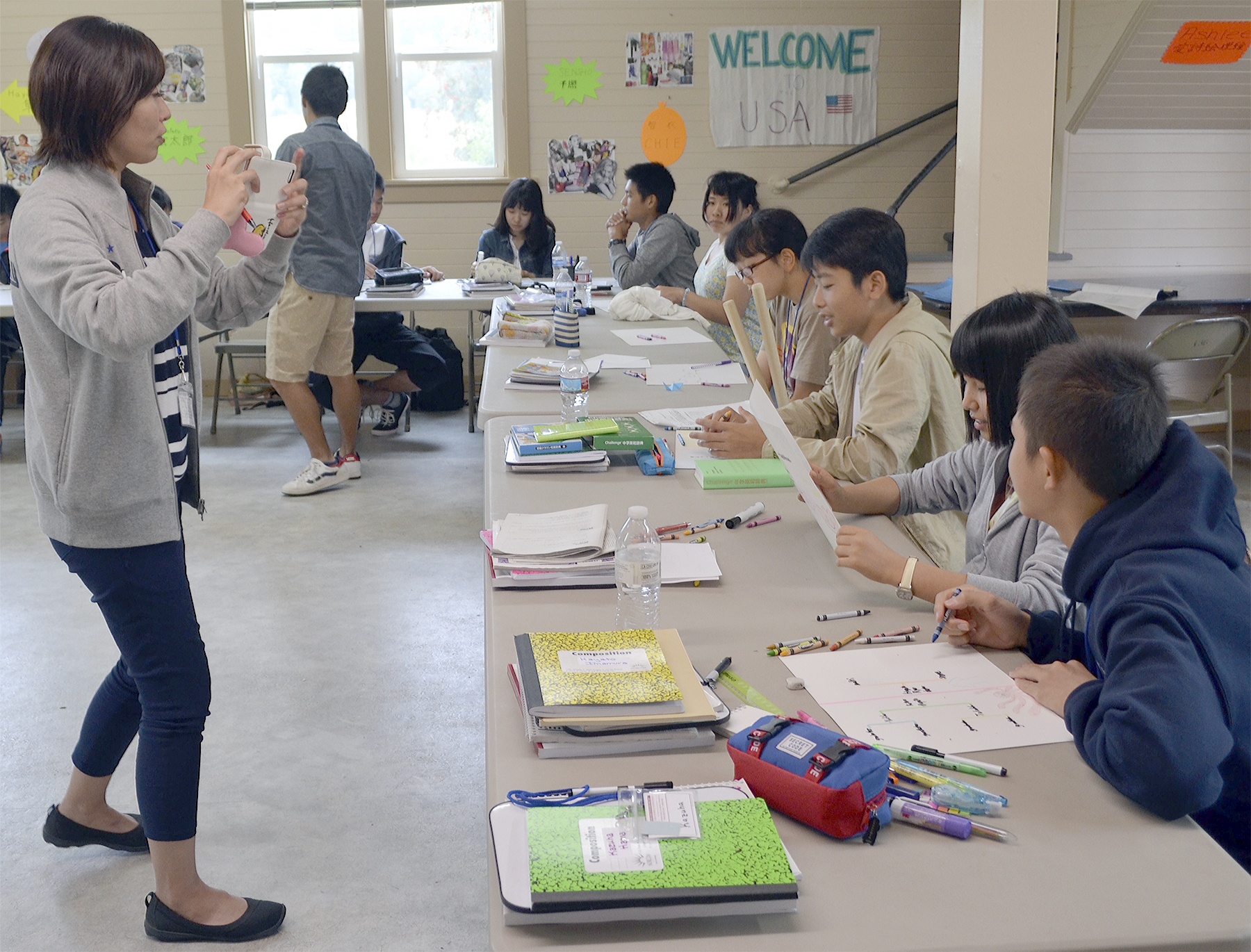MARYSVILLE – You would think they would be homesick: 23 middle school kids thousands of miles away from their parents and loved ones in Japan.
But they’re not. Almost every one of them wants to stay in the U.S. because they love our lifestyle.
They can’t believe how much free time you have,” Japanese English teacher-translator-chaperone Chinatsu Arata said this week.
Arata likes it so much she would like to move here with her 13-year-old daughter.
“People are so kind and nice,” she said. “They ask, ‘How are you?’ That would never happen in Japan.”
A number of people they met over the weekend said, “Ichiro is great” to them. The former Mariners star was in the news after he cracked his 3,000th hit.
Life in Japan is more stressful, Arata said. One girl’s daily routine is to get up at 5 a.m. and not get to sleep until 1 the next morning. They have to learn three dialects of Japanese, along with English.
“They’re so focused on school,” Arata said, adding their summer vacation is going on now for just one month, and they still have to do homework.
“Relaxing is a good feeling,” Arata added.
The students come from all over Japan, and they agree their summer here has been cold. The weather has been like their winters. They are used to hot and humid summers.
Like the kids, this is Arata’s first trip to the U.S. “Everything’s new to us,” she said.
Some traditions are very different.
In Japan, before they go into a home, they always take off their shoes, so the house stays clean. It seems “very strange” not to do that, Arata said, so she does it anyway.
Another thing very new is the diet. In Japan, they are used to rice and Miso soup almost daily. Here they have eaten hot dogs, tacos, pizza and more.
Staci McStotts, one of the organizers of the local foreign exchange program, said one of the 13-year-olds said she wanted to eat “less calories.”
Arata added that the “sweets are very sweet. Too much sugar.”
Meal times different
Another student, 16-year-old Toka Suwa, said meal time is very different. In Japan, they don’t start until everyone is seated. They give thanks for the food and the cook. And they don’t leave until everyone is done. She added that the serving sizes are so large.
Suwa said another thing different is “the schedule is always changing.” In Japan, if they plan something they stick to it. “It’s more strict” in Japan, Arata said.
Suwa, who is from Tokyo, said she liked Seattle more when they visited there because it mixed nature with city life.
She’s enjoying the nature of this area, too. She went swimming in a river, something they never do in Japan. “It was very cold. Almost die,” she said with her ever-present smile.
Over the weekend she attended her first barbecue, and she also made jam for the first time. “I enjoy America very much,” she said.
Ashlee Black, who is running the show with McStotts, is actually hosting Suwa and was told only “grandmas in Japan make jam.”
Showers in the morning
Norikatsu Uono is also 16 and finds some of our customs strange, such as taking showers in the morning. “There’s no time” in the morning, Arata said. “We take baths at night” when we can soak and relax.
Uono’s favorite part of the trip was the plane ride, his first ever. But he also enjoyed a wedding and a birthday party he got to go to with his host family last weekend. “It was outside. Very amazing,” he said of the wedding.
Uono made soup for his host family, and taught them to say “hello” and to write some in Japanese, too.
Black said the students are shy at first because while they have studied English for years in books, they are not taught conversational English.
“We don’t speak the way it’s written out,” Black said. “They’re closed up and withdrawn at first.”
McStotts added, “They’re afraid to make mistakes.”
Try to speak English
So the teachers at the Kellogg Marsh Grange encourage the kids to speak English all the time. “They improve the more they speak out,” McStotts said.
Teachers make it fun by playing games. B-I-N-G-O is a favorite. But they also played shopping, where they used U.S. money to buy products to make sure they received the correct change.
Black said the second week they talk more. The first week they want to be polite. “They don’t want to hurt anyone’s feelings,” she said. But she tells them she wants them to be honest and tell her if they “don’t like that.” They apparently become Americanized pretty quickly.
One of the academic projects this week was a family tree. “That’s never done in Japan,” Arata said.
This family tree had two sides: One for their Japanese family and one for their new American family.
Another lesson taught the students to convert centimeters to inches. That was to come in handy when they went bowling this week and had to ask for a shoe size.
In still another lesson the students were asked to make a collage from magazine pictures. “They love Taylor Swift,” McStotts found out from that assignment.
The kids had a blast at The Dollar Tree. Some of the boys bought dolls and stuffed animals.
“There are some fun, goofy guys,” McStotts said, adding many of the students are also very artistic.
Even though there are Starbucks in Japan, McStotts said one of their favorite places was the very first Starbucks in Seattle. They purchased a number of souvenirs. “It’s big in Japan,” she said, adding scholarships are available for U.S. students to do the same program in Japan.



